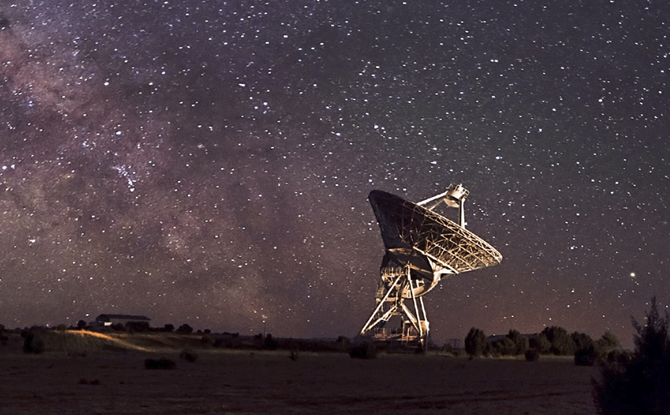By Martin Carey
“The universe is a pretty big place. If it’s just us, seems like an awful waste of space.”
Thus spoke Carl Sagan in his book Contact, and he spoke for an entire culture. Sagan strongly believed that it wasn’t “just us”. The universe must be explored, he believed, if for only one reason—to seek out and encounter intelligent aliens! As Seventh-day Adventists, we fervently believed that there were billions of aliens out there, and they were all watching us! That feeling of being watched by the entire universe and by all the angelic hosts intruded on the most private moments. Our tiniest behaviors were broadcast all over cosmic theater.
Nine years ago, I realized that watching worlds are a key piece in the Adventist theological puzzle, so I wrote about it in Proclamation! magazine. The main point of the article was to show that the Bible does not speak of non-angelic space aliens, that aliens have no place in biblical salvation, and that God does not need to be vindicated before the universe.
Recently, Clifford Goldstein wrote a piece for Adventist Review describing how important alien life was to his own conversion from atheism, and to Adventism’s Great Controversy doctrine. Colleen Tinker responded to Goldstein in the March 29 Proclamation! weekly magazine, and her answer is well worth reading. The watching worlds idea twists the gospel, she points out, and Scripture has no hint of human-like beings who are tested like us with a forbidden tree.
Meanwhile, the search for aliens is intensifying. As astronomers and others sweep the skies for signs of intelligent alien life, any fragments of data that appear to be evidence for a habitable planet are quickly made public. The Kepler space observatory has imaged many possible habitable planets, with the Trappist-1 seven planet system being the most impressive. Habitable planets are those that have a stable star, a circular orbit at the right distance from the host star to allow liquid water, a rocky composition, the right mass, and many other life-friendly features. Our knowledge of such planets will be greatly increased by the future James Webb space telescope assisted by ground-based astronomical research. We will know more, but some very basic questions about the nature of life in the universe will not be any closer to an answer.
The trouble is, there is no widely accepted scientific description of how life could have formed in the uncertain science of “abiogenesis.” Not knowing how life formed on earth, scientists can’t possibly calculate accurately life’s “chances” of forming out there. In fact, their strongest argument for abundant alien life in the universe is the tremendous number of planets that offer of plenty of opportunities for life to take hold. It is unreasonable and arrogant, they argue, to assume that earth is unique in such a vast universe. The probabilities are in life’s favor, they say, no matter how it evolves, and they insist that on some planets, the conditions will be right for intelligent life to develop.
Those are some pretty good secular arguments for alien life, but they avoid the most important questions of all: what is mankind, and what is special about us in the universe?
For scientists who have no concept of man being made in God’s image, man’s place and purpose in the universe remain unknown. If our religious convictions also confuse us about God’s image and degrade its value, we will join the secular scientists in their confusion. The Bible, however, is very clear that humankind is unique in God’s creation. This fact is the reason why the Great Controversy doctrine, with its trillions of watching humanoid aliens, grossly distorts that divine image in us.
For Adventists steeped in that doctrine, a frank discussion about the problems implicit in trying to reconcile God’s image and space aliens is very much in order. In Part 2, we will look at why we don’t need to be concerned with anything scientists may find in our universe. Scientists can’t help but do the Lord’s work! Then, in closing, I will share something big that I missed in my original article on watching worlds. It has to do with why we were created in this particular universe and why it is not arrogant to say that the universe was made for us. Stay tuned!
SUPPORT PROCLAMATION!
- Why Easter is a Big Deal - April 6, 2023
- My True Father - February 16, 2023
- 14. The Law of Christ - December 29, 2022

